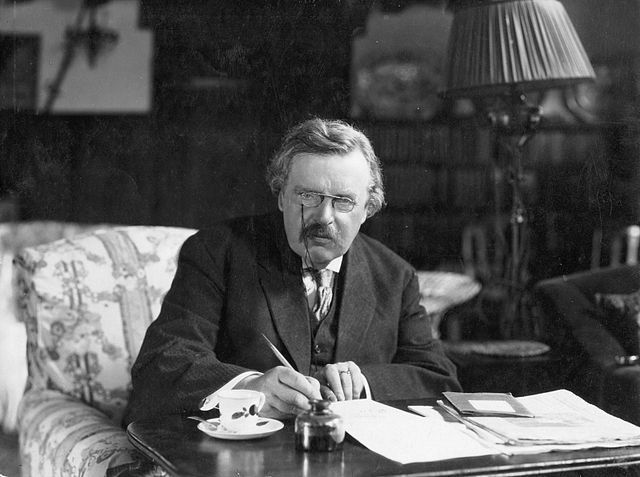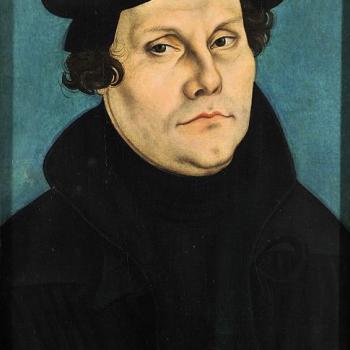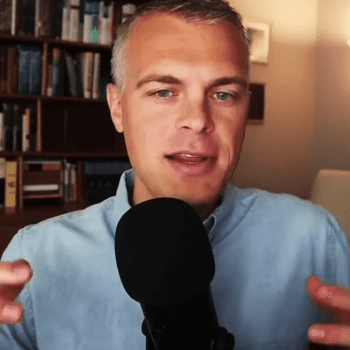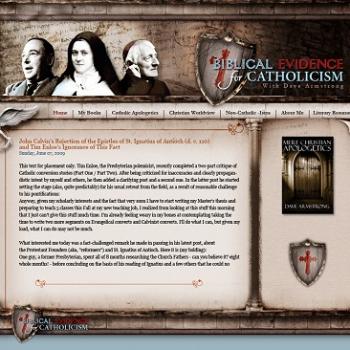
Lay Catholic apologist G. K. Chesterton (1874-1936) [public domain / Wikimedia Commons]
***
This is my reply to a series of probing, inquisitive questions about the nature of a Catholic apologist, asked by a commenter underneath my article for the National Catholic Register, entitled, “Apologetics Doesn’t Mean Being Sorry for Your Faith”. The questions will be in blue.
*****
Dave: I’ve often wondered…1) Is an apologist, by “profession,” bound by certain mandates to defend “everything,” or to speak only to those issues and positions he/she thinks are, in your words, “most true.”
I am assuming you are referring to Catholic apologists, and my answers will presuppose that henceforth. I have always contended that a Catholic, by definition (an orthodox, observant one), accepts all that the Catholic Church requires (doctrines and dogmas). The converse of that is what is called a “cafeteria Catholic”; i.e., a person who arbitrarily picks and chooses what they will believe and not believe. That is making the individual supreme (in their private judgment) in authority in a way that is not consistent with Catholic teaching. It is consistent with most forms of Protestantism, because of its different rule of faith (sola Scriptura).
This being the case, of course a Catholic apologist would defend “everything” that the Church teaches. It’s never been the slightest issue for me, because I firmly believe in (and can give arguments form reason, for) all that the Church binds Catholics to believe, in its creeds and dogmas, etc. I believe that the Catholic Church is infallible (when it is deliberately claiming to be) and specially guided and protected by the Holy Spirit from doctrinal error (indefectibility). I’ve never once been in a position (over 27 years since I converted) of conflict as to my beliefs vs. Catholic ones. They have always coincided. If they ever didn’t coincide, I would simply be silent publicly with regard to those instances, out of deference to the institution that I am serving.
Accordingly, I used to have the following disclaimer posted permanently on my old Blogspot blog (see at bottom right, on the sidebar):
To the best of my knowledge, all of my theological writing is “orthodox” and not contrary to the official dogmatic and magisterial teaching of the Catholic Church. In the event of any (unintentional) doctrinal or moral error on my part having been undeniably demonstrated to be contrary to the Sacred Tradition of the Catholic Church, I will gladly and wholeheartedly submit to the authority and wisdom of the Church (Matthew 28:18-20; 1 Timothy 3:15).
2) Is an apologist credentialed and evaluated by anyone?
Short answer: yes (or, they should be). It takes some explaining, in terms of specificity, which I am happy to do. First, we must distinguish between professional apologists, who do this for a living, and are (hopefully) called by God to be teachers in the Church. I am the first and claim to have a call from God (which I first strongly felt in 1981 when I was a Protestant). On the other hand, lots of people engage in apologetics , and have a website where they do a lot of it. They can be of variable credentials and ability. They may very well have a lot of truth and good arguments to offer, in many cases, but to be safe, and to be sure that one is getting 100% orthodox Catholic teaching, I recommend that people stick to those with more credentials.
Thus, I will now speak about professional apologists only. They can be divided into two categories: 1) those who are hired by well-known, credentialed Catholic organizations, and work solely for them (e.g., Catholic Answers, EWTN, Our Sunday Visitor), or who begin their own organization (e.g., my friend John Martignoni’s Bible Christian Society), and 2) those (like myself) who are free-lance and work (and network) with several Catholic organizations and publishers, as the case may be.
The major Catholic organizations and publishers (including apologetics apostolates) have massive oversight from bishops and priests. Thus, indirectly, those who are hired to write for them or appear on their radio or TV shows fall under that oversight. So, e.g., when I write for Catholic Answers Magazine or appear on Catholic Answers Live (radio), readers or listeners can be assured that I fit into the criteria of orthodoxy set by Catholic Answers: the largest Catholic apologetics organization in the world.
I have affiliations with many of the major Catholic outreach organizations (EWTN / National Catholic Register, The Michigan Catholic [archdiocese of Detroit], Our Sunday Visitor [the largest Catholic publisher], The Coming Home Network [where I worked as a staff moderator part-time for three years], Sophia Institute Press [my primary publisher], Catholic Answers, St. Paul Street Evangelization, various Catholic periodicals, etc. My first book, A Biblical Defense of Catholicism, also has a Foreword and warm recommendation written by the late Fr. John A. Hardon, S. J., who was a major catechist, adviser to Blessed Pope Paul VI, and catechist for St. Teresa of Calcutta’s Missionaries of Charity. He has been delegated as “Servant of God”: the first step towards possible canonization. Fr. Hardon received me into the Church and baptized my first two sons.
I have received four Imprimaturs, including one from my own bishop in metro Detroit. In the latter case, I’ve been told that the person doing the examination of my material did not have to change a single sentence, in order to make it orthodox. Anyone wishing to examine my credentials may read a summary or the complete curriculum vitae.
Lastly, lay apologetics has a long illustrious history, fully approved and encouraged by the Catholic Church. Historically, the most successful, influential, and renowned Catholic apologists were often lay apologists, often converts, and quite often not even formally educated in theology (these three categories all apply to myself). For example, G. K. Chesterton had no formal theological training. In fact, he didn’t obtain a college degree of any sort. He took a few courses (mostly in art) and became a journalist.
There is also a foolish notion that credentialed professional Catholic apologists supposedly clash with Catholic scholars and bishops and popes. This is not the case. I posted a piece of mine yesterday about an alleged conflict of this sort in the area of sola Scriptura. Orthodox apologists and scholars and bishops and popes are n perfect accord. Orthodoxy is the thing that binds us all together.
3) Does an apologist take any kind of formal/informal vow of obedience or conformity?
Usually not a formal one, unless it is part of an organization that may require it. It’s more so an understanding that oversight is present (in ways that I described, above), which can censure heterodox departures. I’ve never been censured yet, in over 24 years of published apologetics (the last 15 as a full-time, professional apologist.
4) Can an apologist publicly express doubts, personal opinions, or disagreements?
Only on issues that are not binding on Catholics (not binding dogma), where we are at liberty to disagree. So, for example, I disagree with Pope Francis about the precise nature of global warming and human causation of same, and about nuclear energy. Those aren’t matters of faith and morals (but of science), and the Church allows differing opinions. I believe in capital punishment only for mass murderers and terrorists, and the Church allows me to hold that position.
5) Does an apologist at any time speak “officially”?
Strictly speaking, no. That is the job of the magisterium of the Church. We are to seek to adhere to the teachings of the magisterium, and defend them.
6) Can an apologist resign or get fired?
From organizations, yes. Recent examples would be the dismissals of Mark Shea and Simcha Fisher (insofar as she was an apologist at all) from National Catholic Register. They fell short of the standards that NCR set, and so they were dismissed from a contractual free-lance writer arrangement. Gerry Matatics used to work for Catholic Answers. He was let go when he started holding to schismatic and eventually sedevacantist views, which are not in accord with orthodox Catholicism.
7) How do you, as an apologist, get assigned or choose to speak on some issues and not on others—do you “specialize”?
If I am asked to write a particular article, it comes from the organization asking me to do the writing. Otherwise, I have always followed a policy of following my greatest level of interest at any given time. This allows me to keep my motivation very high, after 36 years of apologetics. I call it my “secret” of why I produce so much material. Since I have many interests in theology and apologetics, it’s easy for me to keep writing. No one likes doing things they don’t feel like doing at the moment. I have many “sub-specialties”: primarily, “biblical evidence for Catholicism” (the name of my blog); also Luther and “Reformation” studies, anti-Catholicism, atheism, Cardinal Newman (I’ve edited three quotations books of his work), patristics and Catholicism (three more quotations books), and development of doctrine.
Thanks much for the education and explanation.
You’re very welcome. I hope it has been helpful and informative for you and others reading. Thanks for the opportunity to be able to explain what I do and love doing.
For additional material along these lines, see my many articles on my Catholic and General Christian Apologetics web page.
*****
















